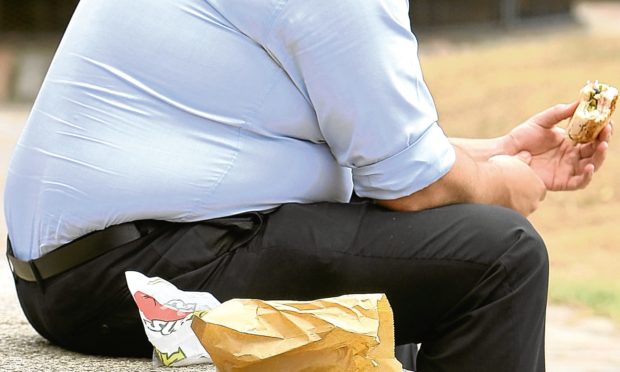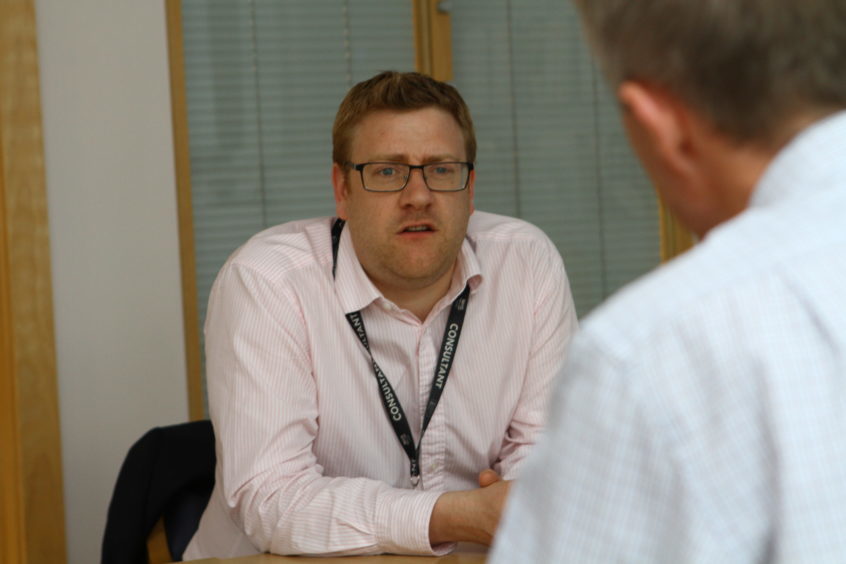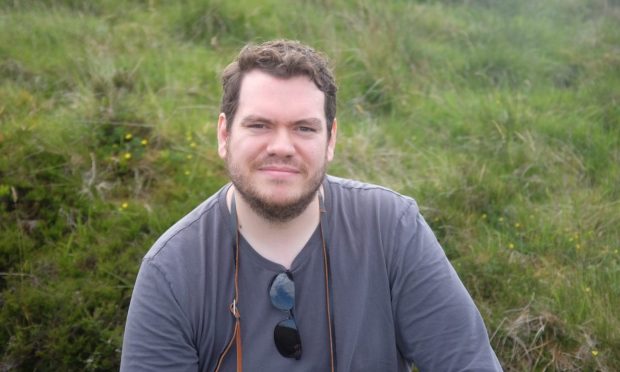Scotland’s obesity epidemic has the potential to “bankrupt” the NHS unless urgent action is taken to manage the problem.
Ninewells Hospital-based consultant endocrinologist and diabetes expert Dr Chris Schofield, 39, said the NHS was heading for a “real mess” unless there is a cultural sea change in responsive treatment and, for the majority of cases, the education to prevent the problems from happening in the first place.
With about 10% of the entire NHS budget currently spent on dealing with obesity-related health problems, Dr Schofield said the trends were a “sign of the times” resulting largely from poor diet, inactivity, social inequality and a culture where people were “strapped to their desks for eight hours a day”.
In addition to the massive financial impact for the NHS, there’s the social cost to people as well.
However, he said the Daily Mile initiative for Scottish primary school children was an example of how simple steps could not only improve fitness but also improve mental health.
Manchester-raised Dr Schofield believes Scotland’s devolved NHS is beneficial because ‘Scotland has particular health needs that are not relevant to the rest of the UK and in that case managing our local needs probably makes a lot more sense.’
He said the Chief Medical Officer’s Realistic Medicine programme was a key strategy – putting the patient at the heart of discussions around treatment and finding cheaper non-medicinal solutions where possible.
With the NHS “creaking and struggling”, he said that undoubtedly some “very difficult choices” had to be made about what it can and cannot supply.
However, he doesn’t believe punitive measures are practical.
He added: “The amount of people I meet who say ‘I eat what I eat because that’s what I can afford’. I have no control over that. ‘Well, you’ve fed your family and you’ve kept them alive for another week’ – who am I to argue with that?”
New analysis published just last week warned that more than a quarter of a million adults in Scotland will be morbidly obese by the year 2035.

The number of those aged 15 and over with a Body Mass Index above 40 will rise to 268,650 within the next 20 years, research presented to a major conference showed.
The percentage of adults classed as morbidly obese will rise from 4% in 2015 to 5% in the next two decades.
However, the Scottish Government has been praised for its actions in tackling in the crisis with figures showing that fewer Scots are becoming morbidly obese than their UK counterparts.
Laura Keaver, from the Centre for Research in Social Professions at the Institute of Technology, said: “The government put a massive push on developing a route map for how we can actually combat this.
“They put together resources from the NHS that were proving to be effective. They did put a lot of work into it.”
In 2015 3% of adults in England and 3% in Wales were classed as morbidly obese.
By 2035 this is predicted to have risen to 8% in England and 11% in Wales.
The projections show that there will be 4.9m morbidly obese people in the three countries by 2035, up from 1.9m in 2015.
The research, by the UK Heart Forum and Institute of Technology, Sligo, in Ireland, was presented at the European Congress on Obesity in Vienna, Austria.













